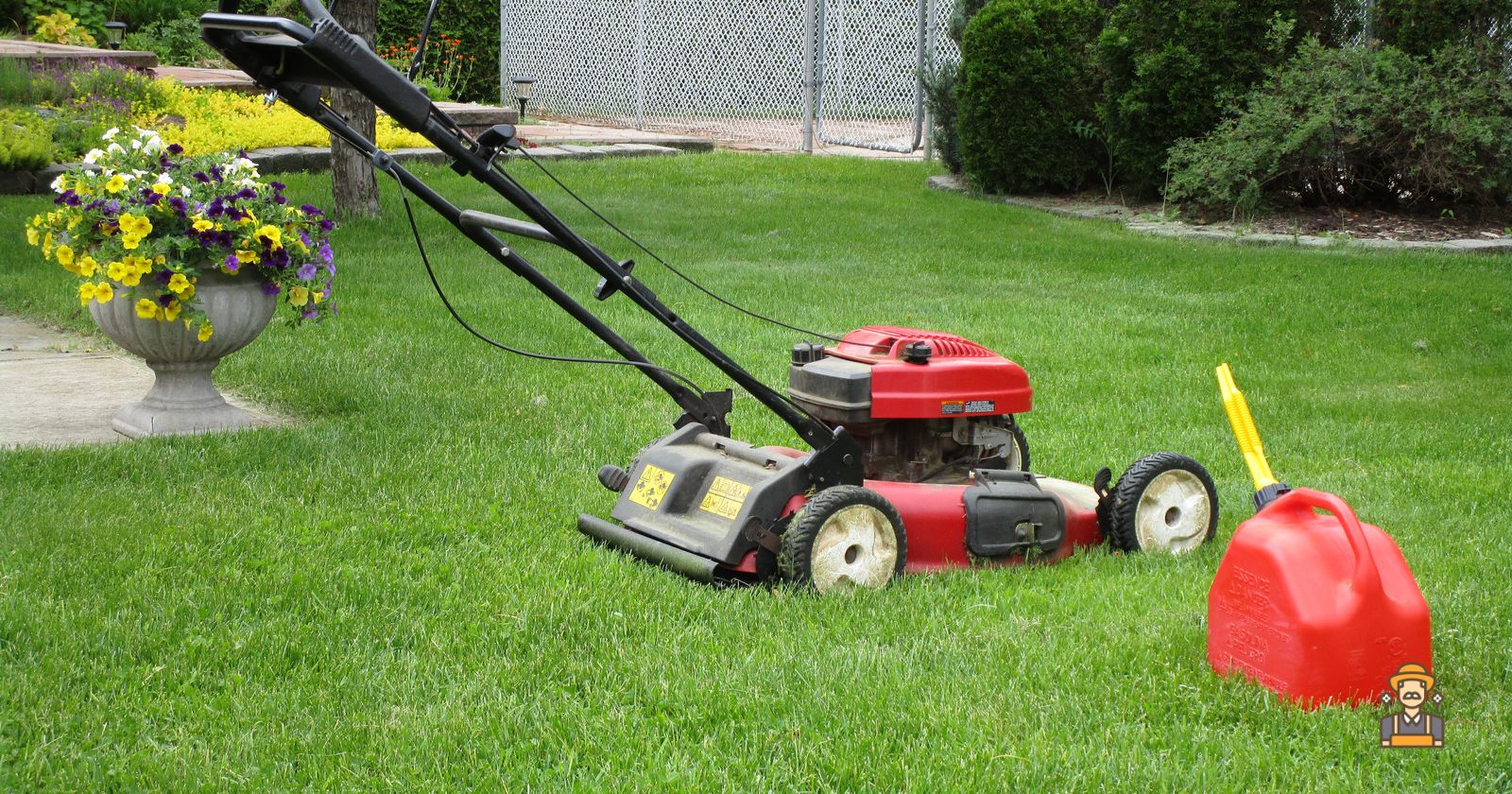Having a lawn mower won’t stay running can be a frustrating experience, especially when you’re trying to keep your yard looking neat and tidy. There are several common reasons for this issue, some of which are relatively easy to diagnose and fix by yourself. In this article, we’ll explore some of the main factors to consider when addressing a lawn mower that starts but won’t remain operational.
First, it’s important to examine the fuel system of your lawn mower. Issues such as old or contaminated fuel can have significant effects on your mower’s performance. If fuel has been sitting around for a long time, it might lose its stability and attract moisture from the air, resulting in corrosion in the fuel system. Another aspect to inspect is the air filter and carburetor. A clogged air filter or carburetor can impede the flow of air and fuel to the engine, causing it to stall.
In addition to fuel and air supply, you should also check the mower’s ignition system. A dirty or faulty spark plug can lead to misfires, preventing your lawn mower from staying running. By addressing these common problems, you can often resolve the issue and get back to maintaining your lawn without further complications.
Common Causes of Lawn Mower Issues
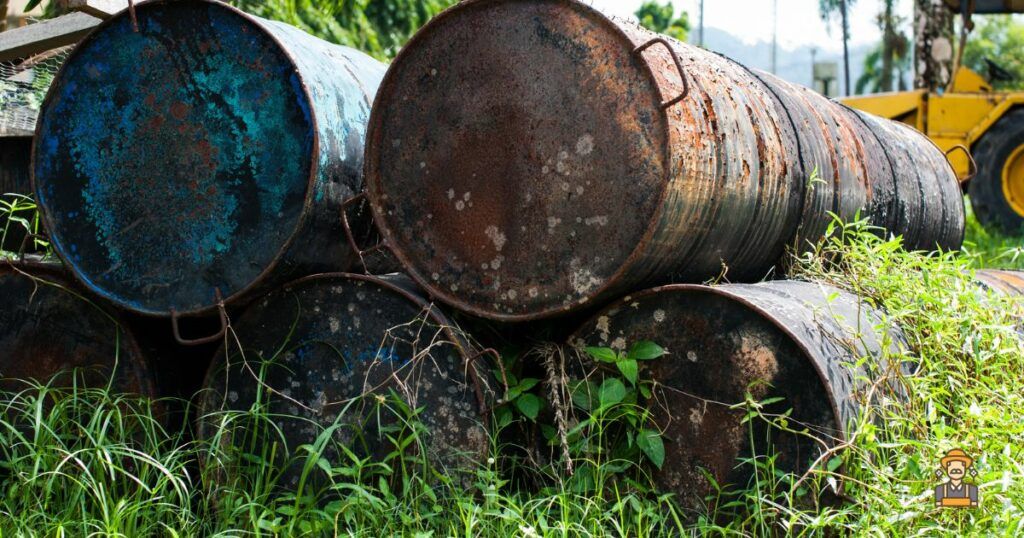
1. Old Fuel and Condensation
One possible reason your lawn mower won’t stay running could be old fuel or condensation in the fuel tank. Old fuel can cause improper combustion, leading to engine problems. To avoid this issue, you should drain old fuel from the tank and replace it with fresh fuel. Additionally, check for any signs of water or condensation in the fuel tank, as this can also lead to engine stalling.
2. Clogged or Dirty Air Filter
A clogged or dirty air filter can reduce the amount of air reaching the engine, causing it to stall or not start at all. To prevent this issue, regularly clean or replace the air filter according to the manufacturer’s recommendations.
3. Dirty or Bad Spark Plug
A dirty or faulty spark plug can prevent your lawn mower from staying running. If the plug is dirty or worn, it may produce an initial spark but not enough to keep the engine running. You should check the spark plug periodically and clean or replace it as needed to maintain optimal performance.
4. Clogged or Dirty Carburetor
A dirty or clogged carburetor can cause your lawn mower to stall or not start at all. The carburetor is responsible for mixing the right amount of fuel and air for combustion. If it’s dirty or clogged, the engine may not receive the proper fuel and air mixture, leading to stalling. To fix this issue, you can clean the carburetor yourself or consult a professional for help.
5. Clogged Fuel Filter
A clogged fuel filter can obstruct the flow of fuel to the engine, causing your lawn mower to stall. To remedy this problem, replace the fuel filter according to the manufacturer’s guidelines.
6. Choke and Misfiring Issues
Incorrect choke settings and engine misfires can also cause your lawn mower not to stay running. Make sure to set the choke properly according to the manufacturer’s instructions. Additionally, if your lawn mower has a history of misfires, consult a professional to diagnose and fix the issue. By addressing these common causes, you can improve the performance of your lawn mower and keep it running smoothly.
Troubleshooting Steps
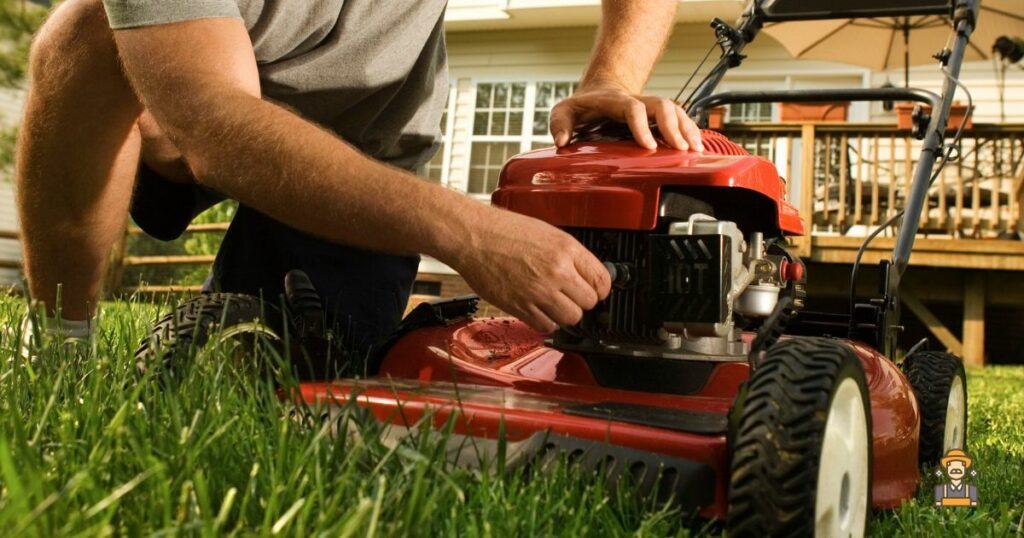
1. Check and Replace Air Filter
You should first examine the air filter of your lawn mower. A dirty or clogged air filter can restrict air flow and cause your mower to not stay running. Remove the air filter and clean it by tapping out debris or use a soft brush to remove dirt. Replace the filter if it is too dirty or damaged. A clean air filter ensures proper air supply which is essential for your mower to function correctly.
2. Inspect and Change Spark Plug
Next, check the condition of the spark plug. A faulty spark plug can lead to starting difficulties or not staying running. Inspect it for damage, carbon deposits, or a worn-out electrode. If necessary, clean the spark plug using a wire brush or replace it with a new one. Remember to make sure the spark plug gap is set correctly according to your mower’s specifications.
3. Clean or Replace Fuel Filter
Examine your mower’s fuel filter, which might be causing fuel supply issues if it is clogged or damaged. You can clean a clogged fuel filter by soaking it in carburetor cleaner and gently blowing it out with compressed air. If the filter is too dirty or damaged, replace it with a new one to ensure proper fuel flow to the engine.
4. Clean the Carburetor
Another common issue is a dirty carburetor, which can disrupt the proper fuel-air mixture and result in your mower not staying running. To clean the carburetor, remove it and disassemble it to access the various components. Soak the parts in carburetor cleaner and use a soft brush to remove any debris or deposits. Reassemble the carburetor and reinstall it on your mower, making sure all connections are secure.
5. Check the Choke and Adjust It
The choke may also cause issues if it is set incorrectly or not functioning properly. Ensure the choke is opening and closing as required, and adjust it to the correct setting as specified by your mower’s manufacturer. If the choke is damaged or not responding, you may need to repair or replace it to ensure smooth mower operation.
By following these troubleshooting steps, you’ll give your lawn mower the best chance at staying running and functioning efficiently, ensuring a well-maintained lawn.
Preventative Maintenance
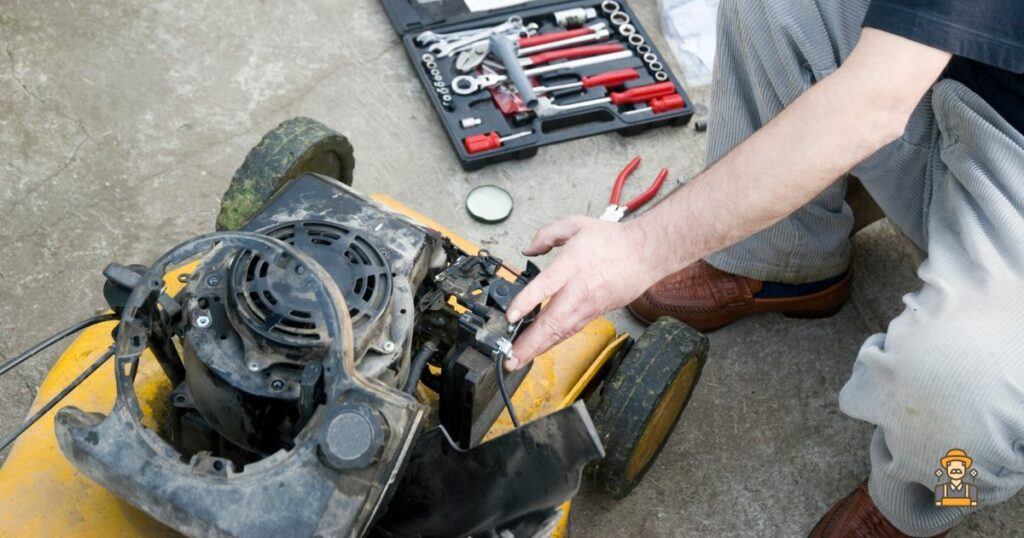
Proper preventative maintenance can help avoid issues with your lawn mower, such as the engine not staying running. In this section, we will cover some key aspects of maintenance that can prevent these problems.
1. Regularly Clean or Replace Filters
To ensure smooth operation of your lawn mower, regularly inspect and clean or replace the air filter. A clogged air filter can hinder air flow, causing your lawn mower to stall or stop running. Make sure to follow the manufacturer’s recommendations for cleaning or changing the filter, which is typically every three months or after 25 hours of use.
2. Inspect and Maintain Spark Plugs
Keeping your spark plugs in good condition is essential for your lawn mower’s performance. Inspect spark plugs regularly for wear or damage, and replace them as needed. Generally, it’s a good idea to replace the spark plug at least once a year, or more frequently if you use the mower heavily.
3. Use Fuel Stabilizer
It’s important to use a fuel stabilizer when storing your lawn mower, especially during the off-season. Fuel stabilizer prevents the gasoline from degrading and causing problems with the carburetor, resulting in your lawn mower not staying running. Add the stabilizer to the fuel tank while filling it and follow the instructions on the bottle for the correct amounts.
4. Maintain and Clean the Gas Tank and Lines
Maintaining and cleaning your lawn mower’s gas tank and fuel lines can help prevent clogs and ensure proper fuel flow. Dirt and debris in the gas tank can lead to blockages and affect the engine’s performance, causing it to stall or stop running. Make sure to empty the gas tank before storing the mower and clean the tank and fuel lines as needed.
5. Keep the Mower Deck Clean
To prevent grass clippings from accumulating on the mower deck, make it a habit to clean it regularly. Built-up grass clippings can impede the mower’s ability to operate smoothly and may cause it to stall. After each use, allow the mower to cool down, then remove any clippings and debris from the mower deck, blades, and discharge chute.
Following these preventative maintenance tips can help you keep your lawn mower running efficiently and avoid issues that may cause it to stall or stop running.
Additional Lawn Mower Resources
If you are looking for more tutorials, walkthroughs and troubleshooting for Lawn Mowers, here are our most recent posts:
When to Contact a Professional
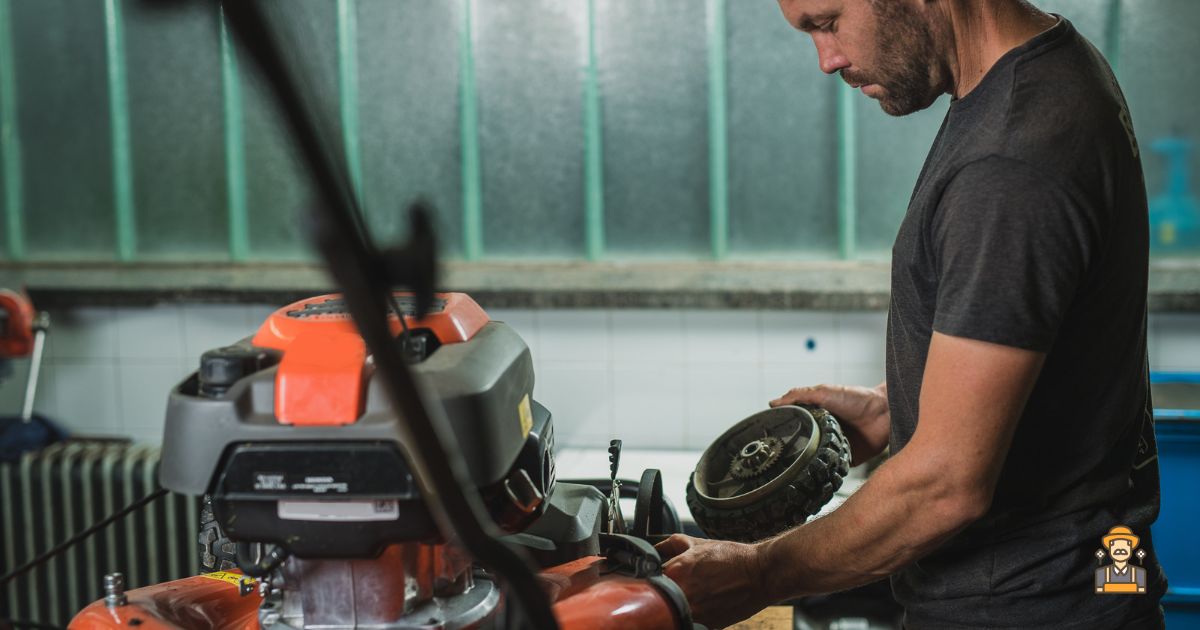
Sometimes, despite your best efforts, you may not be able to troubleshoot and fix your lawn mower’s issue. In these cases, it’s essential to know when to consult a professional.
If you have already checked and addressed common issues such as dirty air filters or bad fuel and your lawn mower still won’t stay running, it’s time to seek the help of lawn mower repair specialists. These experts have the experience and knowledge required to diagnose and repair complex problems that may be beyond your expertise.
Some scenarios when you should contact a professional include:
- You have tried multiple troubleshooting steps, and the issue persists.
- You notice excessive smoke or other alarming symptoms during your attempts to fix the mower.
- The mower is making strange noises or experiencing sudden, dramatic changes in performance.
- You suspect there may be an issue with your mower’s engine, transmission, or electrical system.
It’s essential to receive the proper repair for your specific type of mower, especially if you own a riding mower. These machines require specialized care due to their more intricate systems and components. When seeking out a repair specialist, look for those with experience handling your specific make and model of mower.
Finding a reliable, experienced professional to handle your lawn mower repair ensures that the job will be done correctly, protecting your investment and helping to prevent future issues. It’s always better to address problems early on, as delaying can lead to more expensive and extensive repairs down the line. So, when you encounter persistent issues with your lawn mower that you can’t solve on your own, don’t hesitate to reach out to a professional for assistance.
